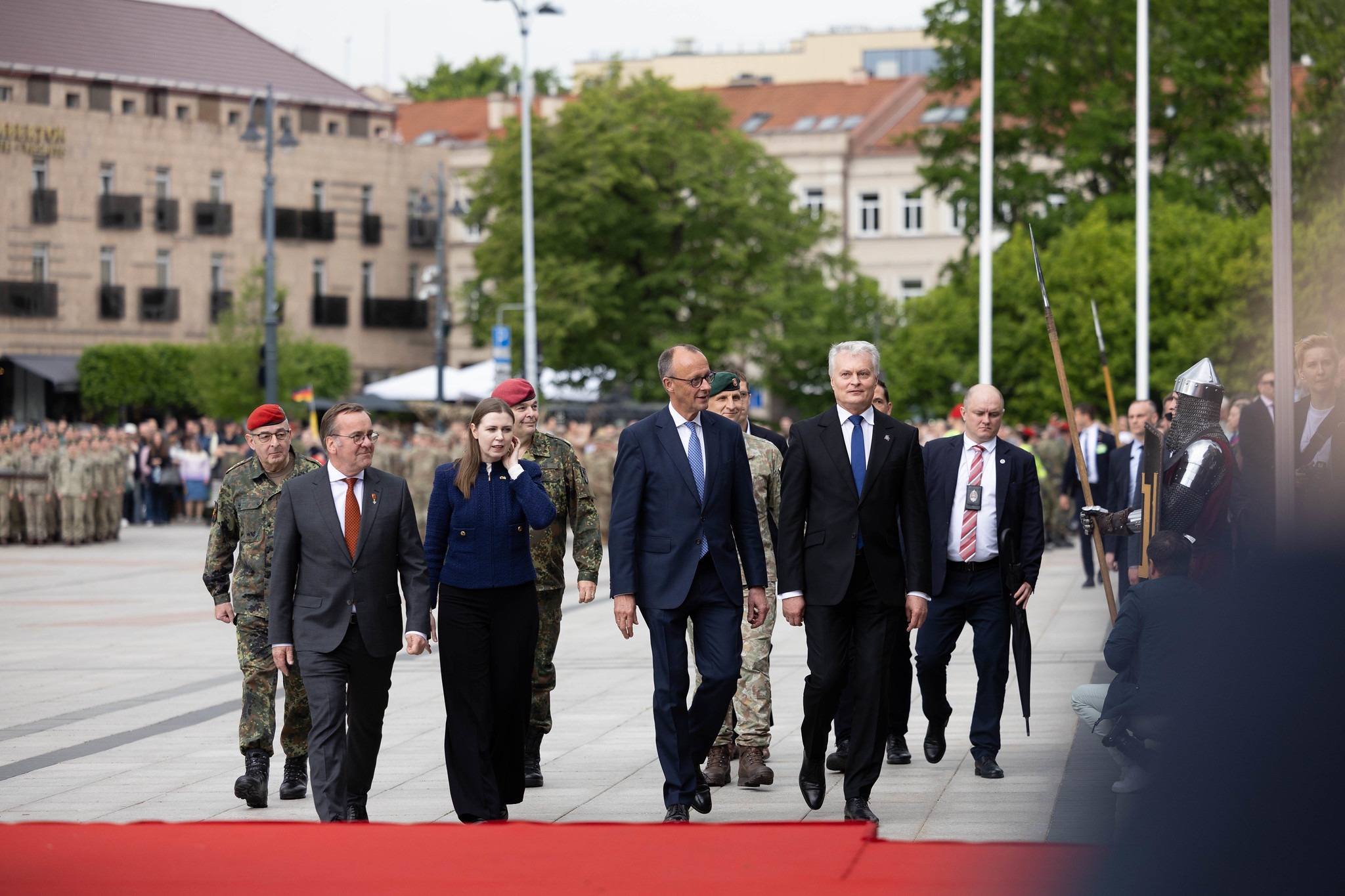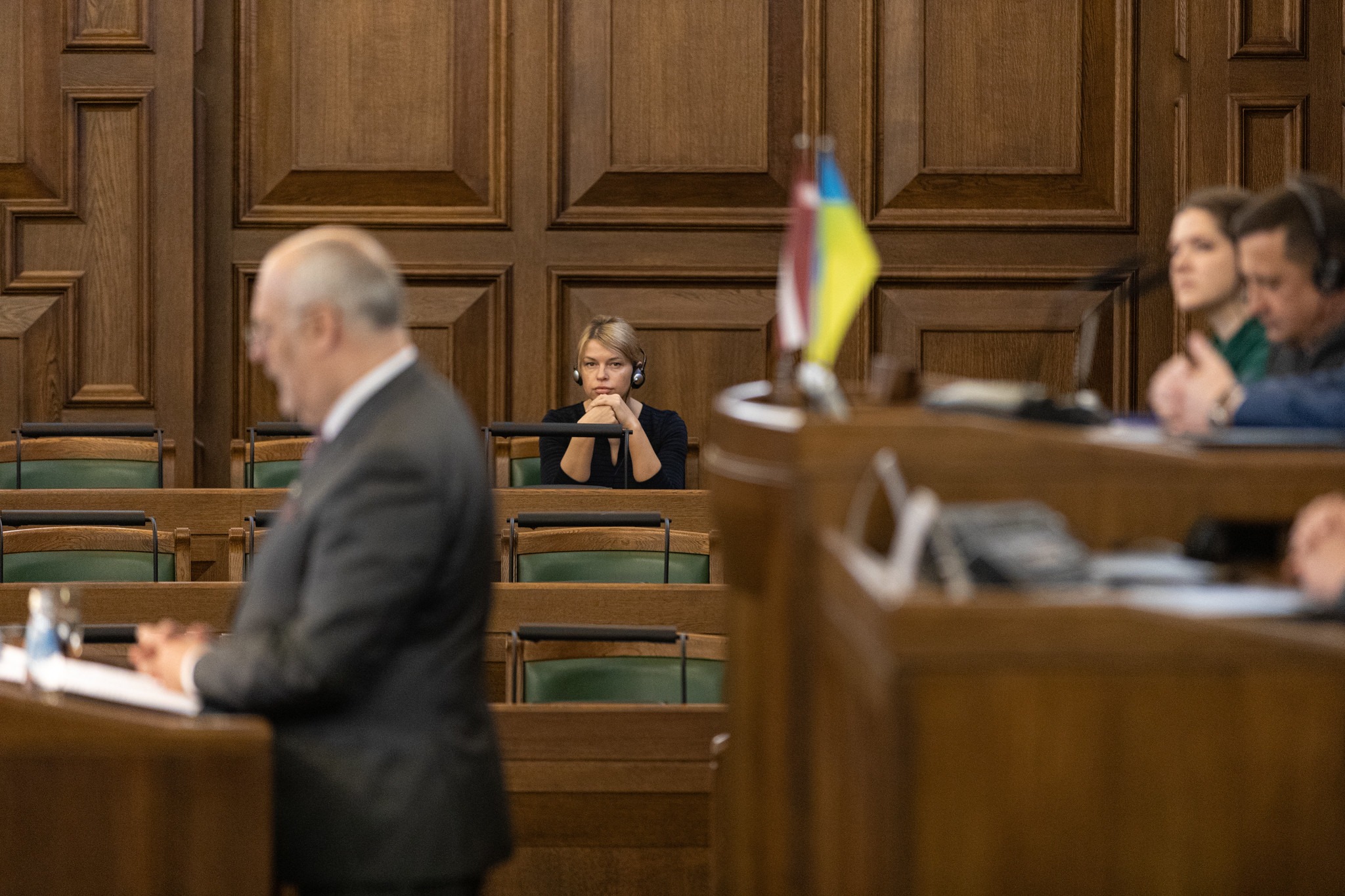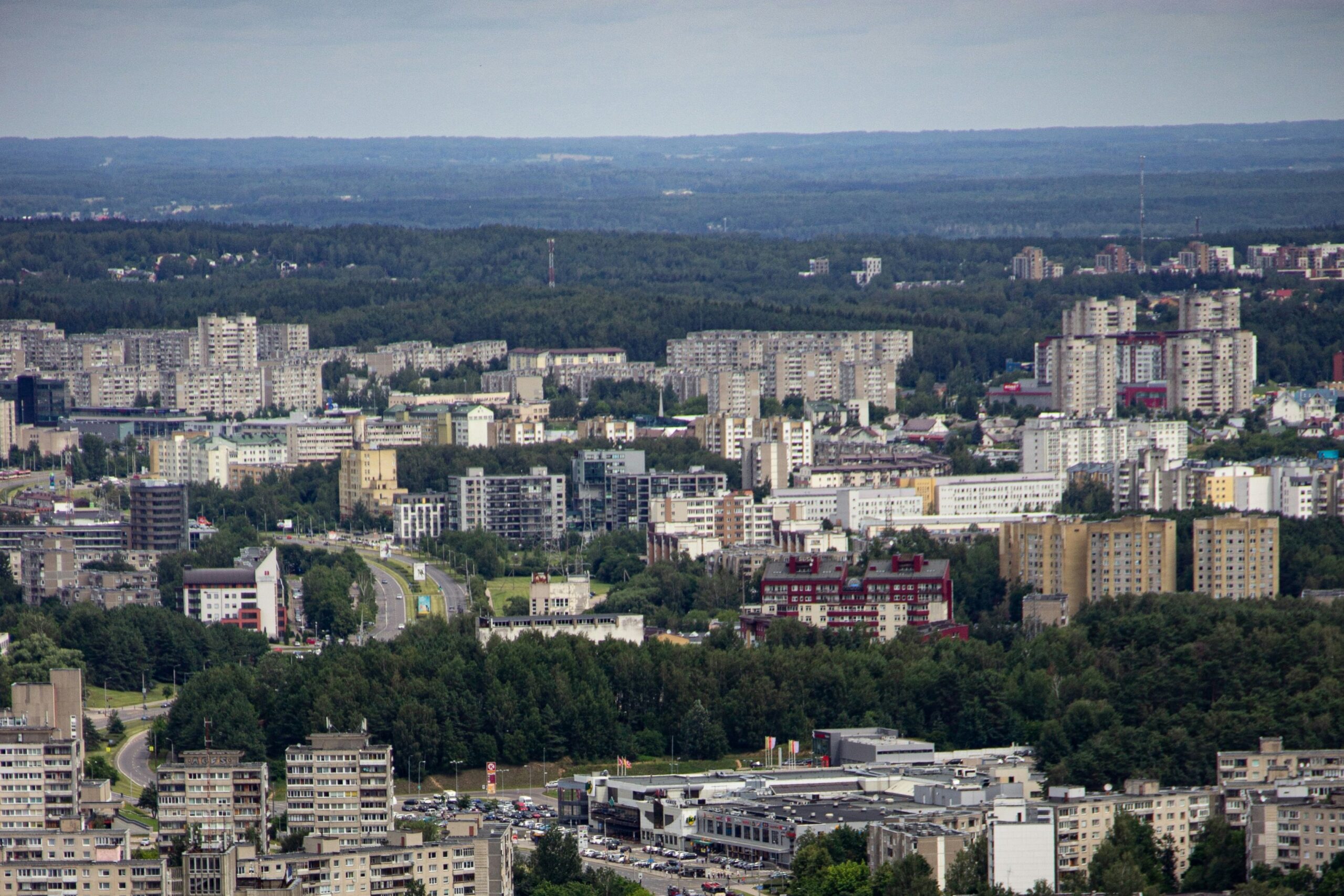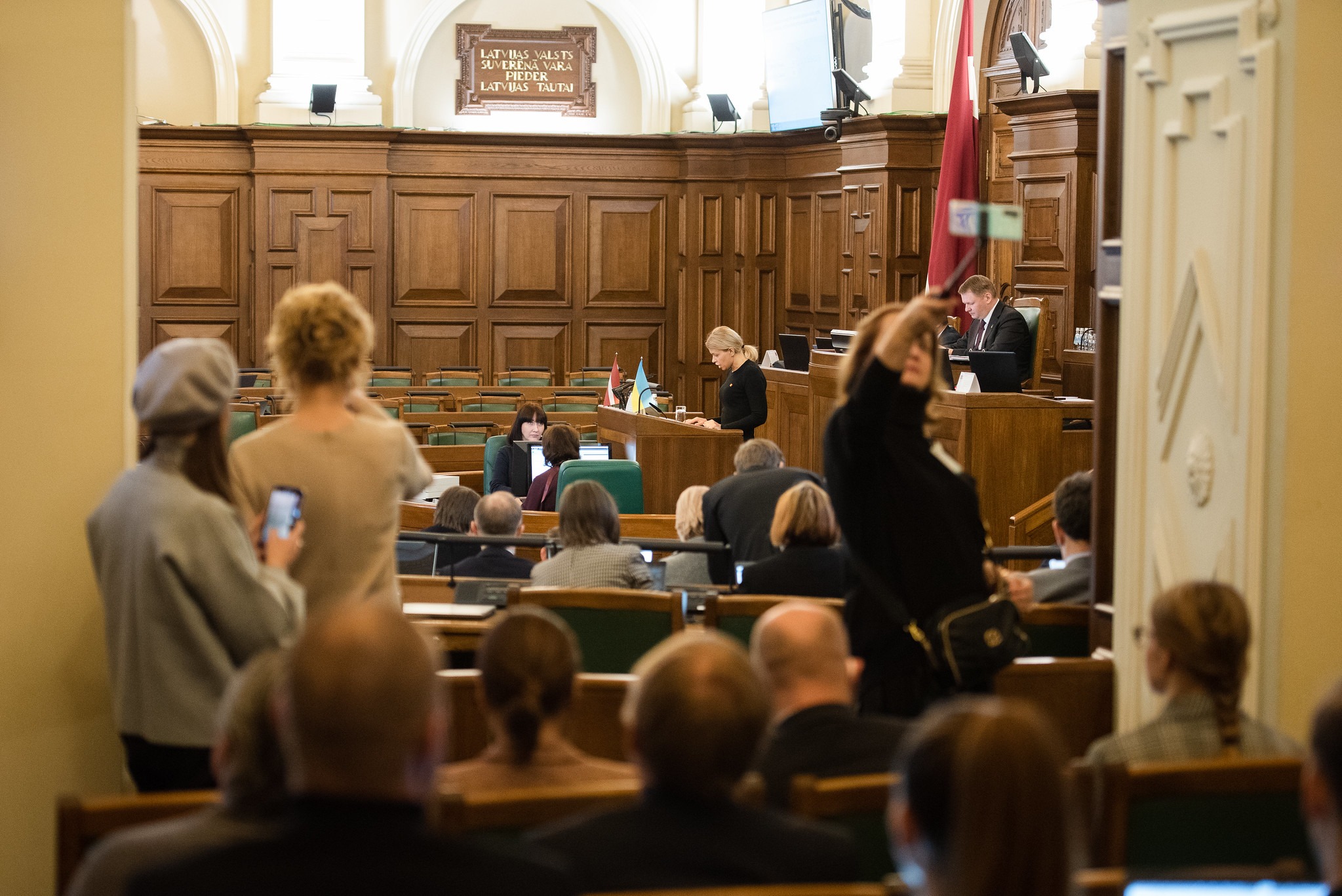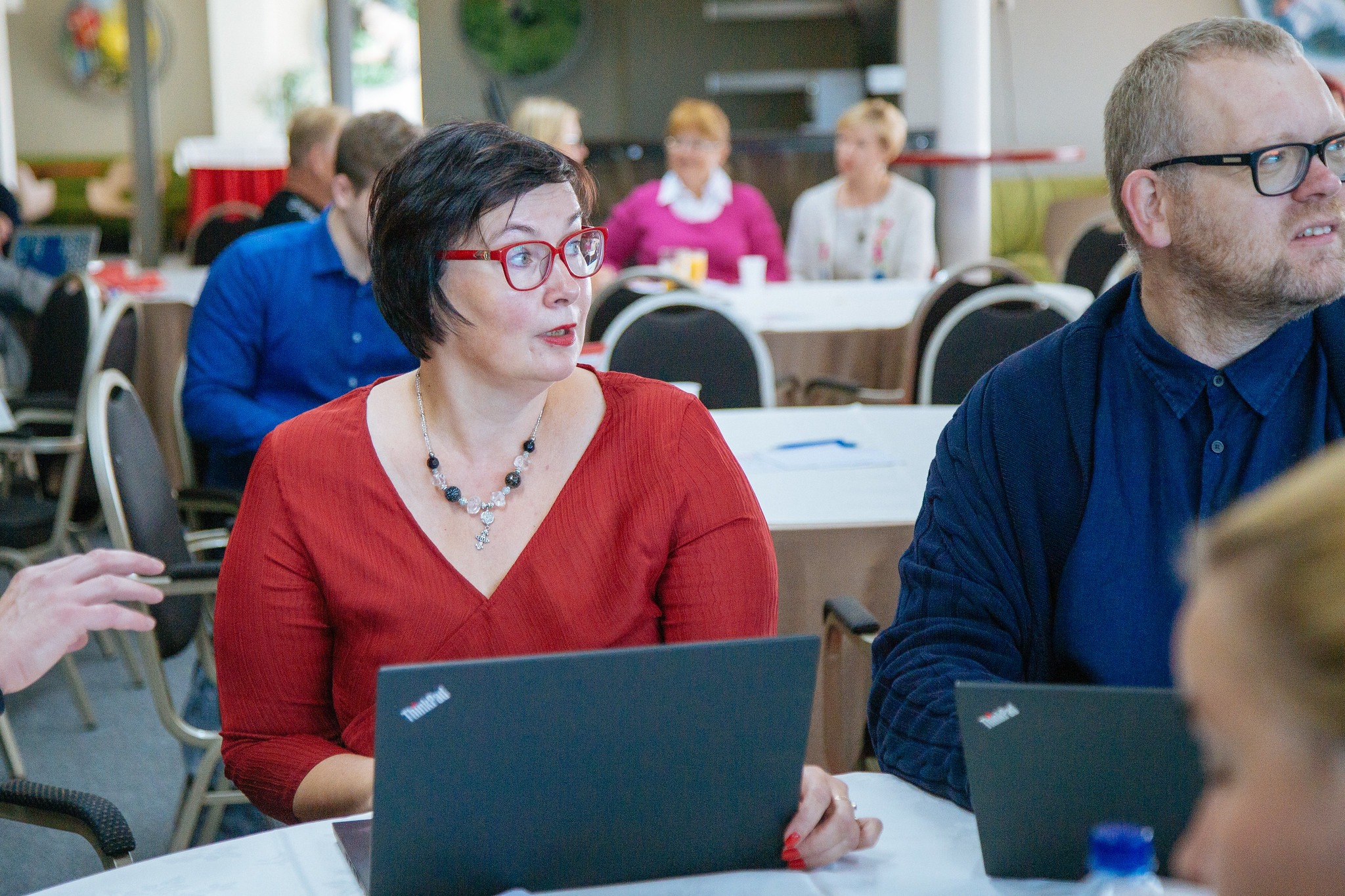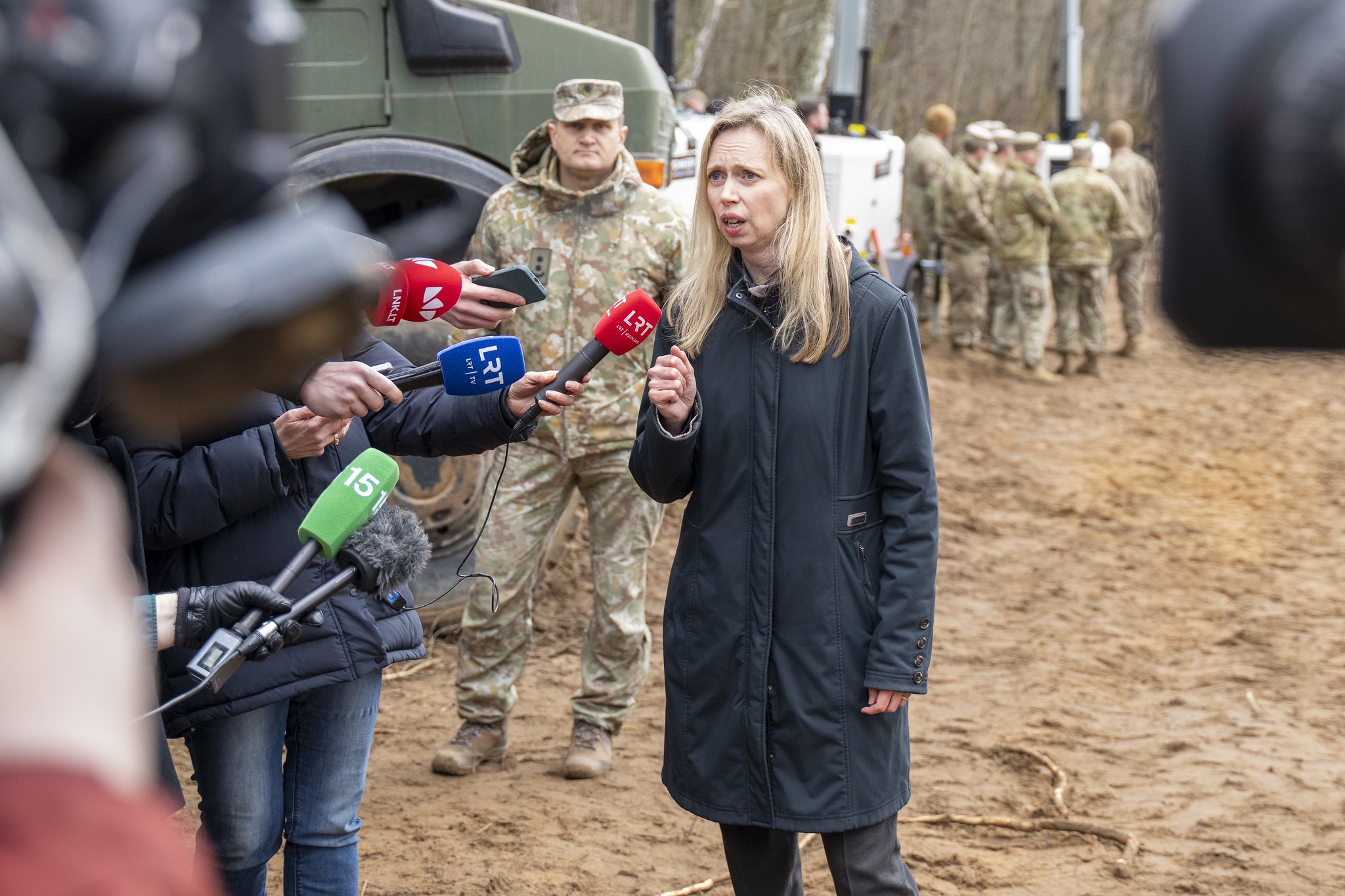
Key Insights:
A social media analysis conducted with the help of the Awario tool revealed that the most prominent themes discussed in Kremlin-aligned Lithuanian media during September were the following ones:
- President Gitanas Nausėda asking the Lithuanian Parliament to denounce all international agreements with Russia and Belarus;
- “Telegram” denying violating EU laws after its founder’s arrest;
- The intentions of Vilnius City Council to change the names of Petras Cvirka Square as well as Salomėja Nėris and Liudas Gira streets due to their connections with the Soviet Union;
- The President authorising Laurynas Kasčiūnas and Jonas Survila to sign the defence cooperation agreement with Germany;
- Data from the Ministry of Health in the Hamas-controlled Gaza Strip that over 41K people have already died during the war;
- “Politico” predicting that Andrius Kubilius may receive the portfolio of European Commissioner for Defense;
- Politician Petras Gražulis’ complaints about the Central Electoral Commission’s decision not to register him as a candidate for the Lithuanian parliamentary elections.
- Future agenda of the Lithuanian Parliament’s autumn session: changes in pension accumulation and the Law on National Minorities;
- Promises of Minister of Finance Gintarė Skaistė that Lithuania’s GDP will grow by 2.3 percent this year;
- The concerns of Aušrinė Armonaitė, Minister of the Economy and Innovation, that “adding new taxes should be stopped”;
- President Gitanas Nausėda going to Moldova to express support for the country’s integration into the EU;
- Recent findings that Swedish bank “SEB” might be continuing its business in Russia; and
- A white whale, believed to have been used in Russian spy operations, was found dead off the coast of Norway.
A comprehensive analysis of Lithuanian media with Kremlin affiliations, conducted through media monitoring tools, identified two predominant themes: Ukraine-related issues and anti-government sentiments. Among Ukraine-related matters were suspicions about why “Olaf Scholz suddenly wanted to speed up peace talks on Ukraine and even supported Putin’s participation in them”, the emphasis on “ongoing Ukraine’s prioritisation over any domestic matters”, and discussions over Ukraine’s incursion into Russia’s Kursk oblast. Other articles presented a variety of harsh criticisms towards the government, including disparaging living conditions in the country, a focus on denigrating the candidates for the upcoming parliamentary elections later this autumn and criticising the whole process of the elections and claims that “despite terrible government’s effort to destroy Lithuania, people manage to live on”.
The first GCTF (Global Cooperation and Training Program) seminar dedicated to the fight against disinformation, “Manipulation of Information by Foreign Powers and Interference in Electoral Processes”, took place in Lithuania. On 6th September, Deputy Minister of Foreign Affairs Egidijus Meilūnas delivered a keynote speech at this seminar in Vilnius. He presented Lithuania’s experience of fighting disinformation spread by Russia, Belarus, and China. Meilūnas emphasised that the aggressive activity of autocratic states in the information space promotes destruction and hatred, causes distrust in democracy, and damages the economy. It is therefore necessary to actively and adequately fight against it and unite the efforts of democratic states. The seminar was organised to discuss the dangers of disinformation and the importance of international cooperation in combating it. Experts from various countries shared their experiences in identifying and countering foreign manipulation of information and interference in elections.
Overview of findings:
- An increased number, 885 articles, compared to 715 articles analysed during August, were scrutinised from four Kremlin-aligned media outlets still actively operating in Lithuania: 77.lt, bukimevieningi.lt, ekspertai.eu and laisvaslaikrastis.lt.
- “Among Kremlin-aligned Lithuanian media, 77.lt stood out for its high activity level in September. It published a substantial portion of the analysed content, with 665 articles, amounting to even 75% of the material reviewed.”
- Although the articles covered diverse subjects, a common thread was a critical stance towards the Government. Criticism varied from comparisons between Lithuania and a Nazi State, emphasising that Lithuania allegedly has a devastating second place in the highest mortality rate, only after Ukraine, to claims that the Lithuanian language is being constantly harmed and is about to disappear if nothing changes eventually the generalised claims that “Lithuanians have turned into the disgraceful nation.
- One of the topics that gathered much traction during the reporting month and opened a new chapter on the information front was the Ukrainian operation in Kursk. Heated debates circulated in Lithuanian social media, gaining notable traction; the main narratives in the Kremlin-aligned social media channels claimed that the West wants to destabilise the situation and provoke Russia, the US intends to occupy Russia, and Ukraine is responsible for thousands of civilian casualties, especially among children.
- The situation‘s coverage in the Russian language was taken into account to provide a view of how this is covered among the Russophones. However, Russian-language media is not very popular in Lithuania as the media monitoring tool has only captured seven articles written in Russian throughout September and 32 since the incursion started. All of these articles were issued by the independent media outlets lrt.lt and delfi.lt in Russian-language versions. Independent media outlets offered balanced coverage of events in Kursk, drawing from various sources and perspectives. These outlets relied on experts from both local and Ukrainian backgrounds, alongside Western media reports and statements from Ukrainian government officials. The articles were well-informed and presented multiple viewpoints, while online discussions following these reports primarily expressed neutrality or support for Ukraine. For example, articles such as “Эксперт об атаке на Курск: Российские элиты начинают сомневаться в Путине” (“Expert on Kursk attack: Russian elites begin to doubt Putin”) circulated online, quoting qualified experts in international relations and international security who asserted that Ukraine is gaining certain advantages over Russia.
- However, the main discussions occurred in social media groups, primarily on Telegram. One of the best examples was the highly active “Антифашисты Прибалтики 🇱🇻🇱🇹🇪🇪” (“Antifascists of the Baltics”) Telegram group (see screenshot and the group’s metrics on the right), where the most radically opposing versions of the events were presented, in contrast to the versions presented in independent media. Lithuanians also have a separate group, called “Антифашисты Литвы” (“Antifascists of Lithuania”), which presents identical narratives.
- All of the posts on the Ukrainian incursion into the Kursk region presented the West as extremely dangerous and pictured the Western powers as occupants. For example, a post that gained traction among the channel’s followers (see screenshot on the right) included a photo with Americans standing next to their flag and a headline saying, “American occupation forces standing on Russian soil”, with the majority of reactions including the “cursing face”.
- Another post claimed that “the Kursk adventure will always remind the Russian people that the West is dangerous, merciless, and like a wounded rat will pounce on others even in a desperate situation” (see screenshot below). The post openly claimed that the Baltic states were Nazi- Russophobic and called them “one of many fangs of a wounded rat”, promising that the Russians would not rest “until this and other fangs are torn from their smiling mouth”. The post also asserted that the time has come to beat up all three Baltic countries, offering options such as “Suitcase-Airport-Britain” or “death under Russian bombs and missiles”.
- Other narratives found in Kremlin-aligned social media channels on Telegram falsely claimed that Ukrainian fascists kill civilians at point-blank range and even use orphans as human shields. These baseless allegations were designed to paint Ukraine as a barbaric and inhumane nation while simultaneously justifying Russia’s invasion. Additionally, these channels propagated the false claim that a civilian nuclear catastrophe awaited. By suggesting that Ukraine was actively seeking to inflict such a disaster, the Kremlin aimed to sow fear and panic among the world’s population. This particular disinformation campaign cantered on the alleged Ukrainian plan to attack the Kursk nuclear power plant. This attempt to provoke fear of another Chernobyl-type disaster was a classic Kremlin tactic designed to undermine international support for Ukraine and create a sense of impending doom.
Story of the month:
Scandal of the Russian-speakers
Algis Ramanauskas, a well-known Lithuanian television presenter, found himself in the public spotlight due to his controversial statements about the Russian language and Russian-speaking people. His assertion that parents who allow their children to watch Russian films should be “shot” caused a significant uproar and public outrage. These radical statements quickly sparked a public discussion about tolerance, hate speech, and the rights of minorities in Lithuania. Although Ramanauskas later apologised for his words, it did not alleviate the tension. It did not hide the deeper societal problems related to integrating Russian-speaking people and their position.
During the reporting period, Algis Ramanauskas, on his talk show on YouTube platform, in a conversation with “Nacionalinis Susivienijimas” representative Vytautas Sinica, responded hostilely to Russian-speaking people who used Russian culture (specifically in the example, “father loudly watches Russian film and mother listens to Russian music) and said that they should “take away their children and then shoot them”. This specific moment was quickly taken out from the broader video context and spread throughout all kinds of media in Lithuania.
Among the examples, one of the most active Telegram channels, “Антифашисты Прибалтики 🇱🇻🇱🇹🇪🇪” (Antifascists of the Baltics), where the same video extract was shared and gathered a notable number of reactions and much hatred (see screenshot on the right) not only towards Ramanauskas specifically but towards the generalised Baltic countries, descriptions of the videos included such statements targeting the Baltic people as “the rabid carriers of Nazism will have to be physically destroyed” and threats as “we should be grateful to Algis <…> for the lack of alternatives to the solution. Thank you, dear comrade. Sleep peacefully. Your grandchildren will bear Russian surnames and names. Great Lithuania will return to its pre-Catholic origins. And Ukraine will reunite with Moscow”.
This was also covered by the popular “Dream” (mriya24) pro-Kremlin channel on Telegram (see screenshot and the group’s metrics on the left). The authors briefly covered the situation, emphasised that “this is not the first time the TV presenter has become the object of attention due to his offensive statements about the Russian-speaking population of the country,” and rhetorically asked whether “we should take notes.”
The event transcended the entertainment and social media world and entered the political arena, where discussions were held about how minorities should be treated in Lithuania and how to combat hate speech. Some political opponents, such as Mindaugas Puidokas, did not hesitate to enter the discussion with his perspective. After numerous criticisms towards Ramanauskas, he also wrote a separate post (see screenshot on the left) targeting politician Vytautas Sinica, the other person in the scandalous talk show. Puidokas rhetorically asked, “How should one understand the position of Vytautas Sinica, who leads the list of the Nacionalinis Susivienijimas to the Seimas?” and asked for an explanation; why did Sinica smile after hearing the suggestions to shoot Russians? Puidokas used the situation to diminish other political parties and their leaders before the upcoming Parliament elections.
After the scandal, Ramanauskas publicly apologised, addressing “our Russians and Russian speakers” and stating “, No, my dear fellow citizens, I did not call you to kill. It was not about you, although it is obvious that I sincerely hate what we know as “Russkij Myr”. According to him, when he talks about “Russified Lithuania”, he means Lithuanians using Russian culture. Yet the discussions about the show and possible legal measures are still ongoing.


